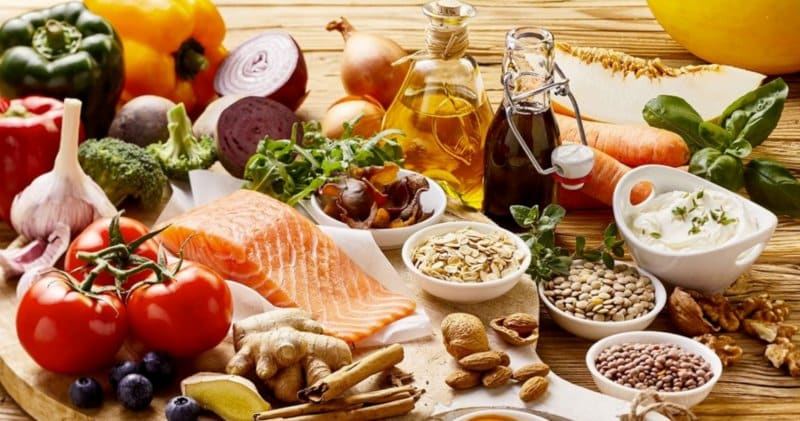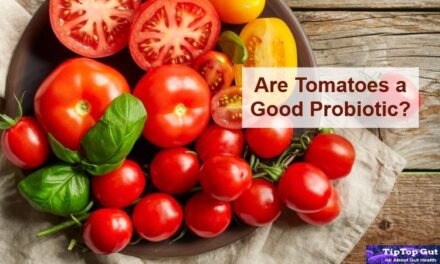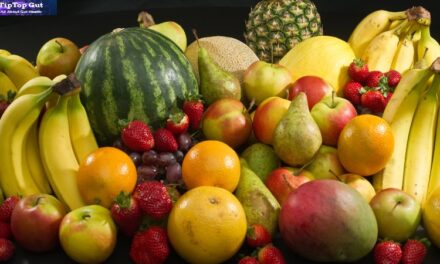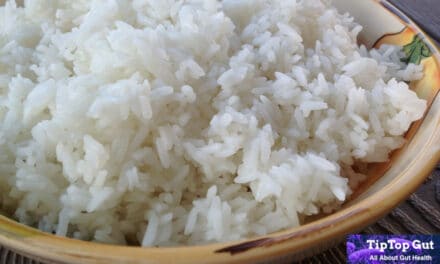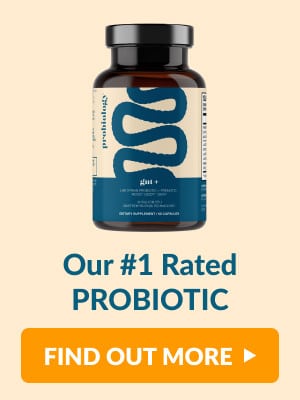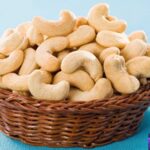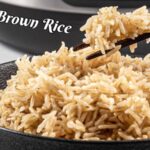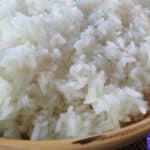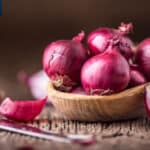It’s no secret that gut health is essential for overall health and well-being. After all, the gut is responsible for digesting food, absorbing nutrients and expelling waste. However, research has shown that the gut plays an even larger role in our health than previously thought. In addition to assisting with digestion, the good bacteria in our gut help keep us healthy by producing vitamins, supporting the immune system and fending off harmful bacteria. In fact, more than 70% of our immune system resides in our gut.
There are a number of foods that are good for gut health and digestion. Here, you’re going to read about the best foods for gut health and digestion. By incorporating these gut-friendly foods into your diet, you can naturally promote gut health and improve your overall health.
What Foods Help Repair the Gut?
A growing body of scientific evidence suggests that the foods we eat can have a significant impact on our gut health. In particular, research has shown that fresh fruits and vegetables, and fermented foods, containing nutrients, fiber, and prebiotic and probiotic compounds can support a healthy gut microbiota and overall wellness.
While there is no definitive consensus on what constitutes a “gut health food”, these findings suggest that incorporating these types of foods into our diet can promote a healthy gut environment. In addition to supporting gut health, these foods are also generally nutritious and offer a variety of other health benefits. As such, including them as part of a balanced diet is an important step in promoting overall health and well-being.
What Foods Help Improve Digestion And Gut Health?
The microbiome is a collection of trillions of microbes that live in our gut, and it plays a crucial role in our overall health. Studies have shown that a healthy microbiome can help to improve digestion, boost immunity, and even promote weight loss.
So, how can we maintain a healthy microbiome? The best way is to eat a range of fresh, whole foods, mainly from plant sources. Fruits, vegetables, legumes, beans, and whole grains are all excellent choices for promoting gut health.
In addition, it’s important to avoid processed foods and sugary drinks, as these can damage the delicate balance of microbes in our gut. By following these simple dietary guidelines, we can keep our microbiome healthy and our overall health on track.
What Are the Best Foods That Help with Gut Health?
The gut is home to trillions of microorganisms, including bacteria, viruses, and fungi. These microorganisms play an important role in digestion, nutrient absorption, and immune function. When the balance of microorganisms in the gut is upset, it can lead to gastrointestinal problems, such as irritable bowel syndrome (IBS), inflammatory bowel disease (IBD), and diarrhea.
With a regular intake of the best foods that help with gut health, you can improve your gut health and digestion naturally.
Luckily, there are several ways to support a healthy gut through diet. Here are the best foods you may incorporate into your daily meal plan to promote gut health and digestion.
Best Foods for Gut Health and Digestion

Almonds
Did you know that almonds are not only a delicious and nutritious snack, but they can also be good for your gut? Scientists have observed that almonds can improve the microbiota profile and have the ability to change intestinal bacterial activity. This is thought to be due to the high fibre content of almonds – just two servings (46 almonds) provide 6.9g of fibre.
Additionally, the prebiotic effects of almonds make them a great food for promoting gut health. So next time you’re looking for a tasty and healthy snack, reach for some almonds! You may read more about What Nuts are Good for Gut Health? Delicious Nuts 2022
Apple Cidar Vinegar
Apple cider vinegar has been used as a natural remedy for centuries, and there’s good reason for its popularity. “It helps your body create HCL (hydrochloric acid), which is a beneficial belly acid that helps digest fats, carbohydrates, and protein,” says dietitian and founder of NAO Nutrition, Nikki Ostrower.
“This aids in weight loss and it also helps to relieve acid reflux and irritable bowel syndrome because of all the beneficial probiotics and amino acids.”
ACV is also a rich source of potassium, which is essential for healthy muscle function, and it contains acetic acid, which has been shown to kill harmful bacteria. In addition, apple cider vinegar is a potent antioxidant, helping to protect the body against free radical damage.
With so many potential benefits, it’s no wonder that apple cider vinegar is considered a wellness jack-of-all trades. You may read more about: ‘Is Apple Cider Vinegar Good for Gut Health? Studies Proved the Truth 2022′
Apples
Apples are a healthy addition to any diet, and their high pectin content is one of the many reasons why. Pectin is a soluble fiber that bypasses digestion in the small intestine and is then broken down by the friendly bacteria in the colon. This process helps to increase stool volume and movement, making apples a natural remedy for constipation and diarrhea.
In addition, pectin has been shown to decrease the risk of intestinal infections and inflammation in the colon. So if you’re looking for a way to improve your digestive health, reach for an apple next time you’re feeling constipated or have an upset stomach.
Asparagus
Asparagus is not only a delicious vegetable, but it also has many health benefits. One of these benefits is that asparagus is a powerful prebiotic for the gut. This means that it helps to promote the growth of healthy bacteria in the gut, which can improve digestive health.
Additionally, asparagus may also be protective against certain cancers. This is because it contains glutathione, an antioxidant that fights off free radicals and other inflammatory compounds in the body.
To enjoy the health benefits of asparagus, simply roast the spears with olive oil, salt and pepper at 400°F for 10 to 15 minutes. Or shave raw asparagus over a green salad. Asparagus is also delicious added to pasta or an omelet.
Avocados
Avocados are a nutrient dense fruit that contains gut healthy antioxidants, vitamins, and minerals. They are also a good source of fibre, which is essential for a healthy gut. The research conducted by the University of Illinois found that participants who ate an avocado everyday had a larger number of gut microbiomes, which help to break down fibre and produce gut healthy metabolites.
The study showed that the participants who ate an avocado everyday had increased levels of vitamins A, E, and K, as well as carotenoids and flavonoids. These nutrients are essential for gut health, and they help to improve the function of the immune system. Avocados are also a good source of monounsaturated fats, which have been shown to reduce inflammation in the body.
Bananas
Fiber is an important component of a healthy diet, and there are two main types: soluble and insoluble. Soluble fiber dissolves in water and helps to regulate digestion, while insoluble fiber does not dissolve and helps to add bulk to stool.
Both types of fiber are found in green bananas. In addition to dietary fiber, green bananas also contain resistant starch, a type of indigestible carbohydrate that acts like a prebiotic in the gut.
Prebiotics provide food for the good bacteria that live in the gut, and they have been linked to a variety of health benefits, including improved digestion and a lower risk of obesity and diabetes.
So if you’re looking for a healthy snack that will benefit your gut microbiota, reach for a green banana instead of a ripe one. You can enjoy it on its own or add it to overnight oats or Greek yogurt for a boost of fiber and protein. You may read more about: Are Bananas Good for Gut Health? An Ultimate Guide 2022
Barley
As anyone who has ever had a beer knows, barley is a popular cereal grain that is used to make beer. But barley isn’t just good for brewing – it’s also packed with health benefits. One of the most notable of these is beta-glucan, a prebiotic fiber that promotes the growth of friendly bacteria in your digestive tract.
Beta-glucan has also been shown to lower total and LDL (bad) cholesterol, reduce the risk of cardiovascular disease, and help lower blood sugar levels.
In one study, barley beta-glucan even improved metabolism in mice through both suppression of appetite and improvement of insulin sensitivity. So if you’re looking for a healthy grain to add to your diet, barley is a great option. Cheers!
Beets
Beetroot, otherwise known as beets, is a good source of fiber. One cup (136 grams) of beets contains 3.4 grams of fiber. Fiber bypasses digestion and heads to your colon, where it feeds your healthy gut bacteria or adds bulk to your stool — which both improves digestion.
A few popular ways to eat beets include roasted, mixed in a salad, pickled or blended into a smoothie. Beetroot’s nutrients can help improve digestion by helping feed friendly gut bacteria and adding bulk to your stool.
For example, one study showed that people who ate three medium-size beets per day increased their levels of betaine — a compound that helps fight inflammation — in their blood.
Another study found that drinking beetroot juice could improve exercise performance by up to 16% due to the nitrates in beets increasing blood flow to the muscles. So, if you’re looking for a nutrient-rich food that can also help improve your digestion, add some beets to your next meal!
Black Beans
Black beans are a great source of dietary fiber and resistant starch, both of which are beneficial for gut health. Resistant starch is a type of starch that resists digestion, meaning it passes through the gut relatively undigested. This can have a prebiotic effect, providing food for gut bacteria and promoting the growth of healthy bacteria.
Black beans also contain high levels of soluble fiber, which has been shown to reduce inflammation throughout the body, including in the gut.
In addition to their dietary benefits, black beans are also a delicious and versatile ingredient in many different dishes. Whether you use them in chili, curry, or stew, they’re sure to add flavor and nutrition to your meal!
You may be surprised by reading, “Are Beans Good for Gut Health?”
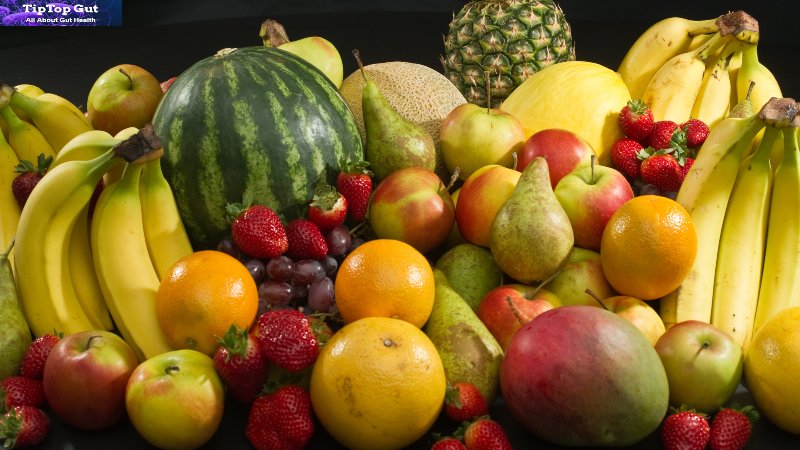
Bone Broth
Bone broth is a traditional food that has been eaten for centuries. It is made by slow cooking bones and marrow from chicken or beef in water. During the cooking process, the nutrients from the bones are released into the broth, making it a highly nutritious food. Bone broth is rich in minerals and amino acids, which can help to heal and seal the gut lining.
This makes it an effective treatment for irritable bowel syndrome, leaky gut food intolerances, and other gastrointestinal problems. In addition to its medicinal benefits, bone broth is also a delicious and nourishing food that can be enjoyed by people of all ages.
Broccoli
Broccoli and other cruciferous vegetables have long been touted for their health benefits. These leafy greens are a good source of fiber and vitamins, and they have been linked to better digestive health and a reduced risk of colorectal cancer. Now, new research suggests that these veggies may also promote gut microbiota diversity.
The study, which was published in the journal BMC Gastroenterology, found that eating cruciferous vegetables was associated with a higher abundance of beneficial gut bacteria. These findings add to the growing body of evidence demonstrating the importance of gut health for overall well-being. So if you’re looking to boost your health in 2020, don’t forget to add broccoli and other cruciferous vegetables to your diet.
Brussels Sprouts
Brussels sprouts get a bad rap. They’re often overcooked and mushy, leading many people to write them off as unpleasant and flavorless. But when cooked properly, Brussels sprouts can be a delicious and healthy addition to any meal.
They’re packed with fibre and nutrients, and their sulphur compounds give them a unique flavour that pairs well with bacon and garlic. So next time you’re looking for a tasty side dish, don’t hesitate to give Brussels sprouts a try. You might just be surprised at how much you enjoy them.
Burdock Root
Burdock root is a vegetable that has been used for centuries in Japan. It is now gaining popularity in the West as people learn about its many health benefits. Burdock root is rich in fiber and antioxidants, making it an excellent addition to any diet. The high fiber content helps to support digestive health, while the antioxidants help to protect against disease.
In addition, burdock root is a good source of inulin and FOS, which promote the growth of healthy bacteria in the gut. With so many proven health benefits, it is no wonder that burdock root is becoming a popular vegetable among health-conscious consumers.
Buttermilk
Back in the day, buttermilk was a lot more popular than it is now. These days, you might have to search a bit to find it, but it’s definitely worth the effort. Buttermilk is simply the leftover liquid you get when making butter and it’s full of vitamins, minerals, and live bacteria. It’s a fermented treat that is both delicious and good for you. Make sure you get buttermilk that is made in the traditional way – you’ll be glad you did!
Chia Seeds
Superfoods are all the rage these days and chia seeds have definitely made the list. Hailed for their many benefits, these tiny black and white seeds pack a powerful punch. One of the main benefits of chia seeds is their high fibre content. In just one serving, there is nearly 9g of fibre. This is important because fibre helps to feed the good bacteria in your gut, keeping your digestive system working properly.
Additionally, the fibre in chia seeds is soluble, which means it helps to keep you feeling full and can even help to regulate blood sugar levels. So if you’re looking for a way to up your fibre intake, chia seeds are a great option.
Chickpeas
Chickpeas are a type of legume that is native to the Middle East and India. Also known as garbanzo beans, they are a popular ingredient in many dishes. Chickpeas are an excellent source of both fiber and resistant starch. Fiber helps to keep your digestive system healthy, while resistant starch acts as a prebiotic, promoting the growth of beneficial gut bacteria.
In addition to improving gut health, chickpeas may also help you manage your weight better and lower the risk of type 2 diabetes. Resistant starch resists digestion, so it stays in the intestines longer and helps you feel full for longer after eating.
Additionally, studies have shown that consuming chickpeas can help to regulate blood sugar levels and improve insulin sensitivity. So if you’re looking for a nutritious food that can benefit your gut health in multiple ways, look no further than chickpeas!
Read More:
Best Over the Counter Probiotic for Gut Health: An Ultimate Guide!
Chicory Root
Chicory root is a fibrous rhizome harvested from a plant in the daisy family. It is commonly baked, ground, and used as a coffee substitute or fiber additive due to its high concentration of inulin, one of the prebiotic compounds in chicory.
Prebiotic compounds are beneficial for gut health because they feed the good bacteria in the gut, helping to maintain a balanced microbiome. Chicory root is also a good source of dietary fiber, which helps to promote regularity and digestion.
Additionally, chicory root contains other minerals such as potassium, calcium, magnesium, selenium, and zinc. These minerals are essential for many bodily functions, including cell repair, metabolism, and immune system function. Therefore, chicory root is not only a healthy addition to the diet but also a nutrient-dense food.
Chocolate
Raw and certified organic, prebiotic and probiotic-enhanced chocolate bars are a delicious way to get your prebiotic and probiotic fix. A growing number of brands are now making them. Sakara Life’s Probiotics Chocolate, for example, contains 10 billion active bacterial cells to support a healthy and thriving gut microbiome, as well as yacon root for prebiotic fiber to nourish existing gut microbes. Prebiotics are nondigestible carbohydrates that selectively promote the growth of good bacteria in the large intestine.
Coconut Oil
Coconut oil is known for its multitude of health benefits, and for good reason. According to certified nutritionist Lauren Ostrower, coconut oil is an antiviral, antimicrobial, antibacterial, and antifungal agent. It contains lauric and caprylic acids, which are fatty acids that are remarkable at killing off harmful yeast and bacteria while restoring your stomach’s acidity levels.
In addition, coconut oil can help to improve digestion and promote weight loss. Plus, it tastes great! Coconut oil is a delicious and healthy cooking oil that can be used in a variety of dishes. Whether you’re sauteing vegetables or baking a cake, coconut oil is a healthy option that is sure to please your taste buds.

Collagen
As we age, our bodies produce less and less collagen. This protein is essential for healthy skin, bones, and joints. It also plays a role in gut health. Many people turn to supplements to boost their collagen intake, but there are other ways to get this important protein.
Adding collagen to your diet can help heal an inflamed gut and slow the aging process. You can add collagen to your coffee, soup, or smoothie. This will help you get the collagen you need for a healthy body.
Dandelion Green
Dandelions are a family of flowering plants that can be found in many parts of the world. The greens of the plant are edible and can be cooked or consumed raw. They are an excellent source of fiber, containing 1.92 grams per 1 cup (55 grams). Much of this fiber comes from inulin, which has a number of health benefits. Inulin fiber helps to reduce constipation, increase friendly bacteria in the gut, and boost the immune system.
Additionally, dandelion greens are known for their anti-inflammatory, antioxidant, and anticancer effects. So not only are they delicious, but they’re also good for you! Next time you see a dandelion, don’t reach for the weed killer – reach for a plate instead.
Fennel
Fennel is a plant with a pale bulb and long green stalks. It is often used to add flavor to food, but it also has a number of other benefits. For example, fennel contains a high level of fiber. This helps to prevent constipation and improve regularity in your digestive tract. In addition, fennel also contains an antispasmodic agent.
This relaxes the smooth muscles in your digestive tract and can reduce negative symptoms like bloating, flatulence, and cramping. As a result, fennel’s fiber content and antispasmodic agent can both improve digestion by limiting some negative gastrointestinal symptoms.
Fish Oil
A recent study published in the Scandinavian Journal of Gastroenterology has shown that people with irritable bowel syndrome (IBS) may not be consuming enough omega-3 fatty acids from fish. The study, which analyzed blood from 91 adults, showed that those with IBS had the lowest levels of these healthy fats in their blood.
Omega-3 fatty acids are known to have numerous health benefits, including reducing inflammation and improving heart health. However, the amount of fish oil needed to obtain these benefits is large, and many people require supplements in order to get enough.
The good news is that there are many high-quality fish oil supplements available on the market today. If you think you may be deficient in omega-3 fatty acids, talk to your doctor about whether a supplement is right for you.
Flax Seeds
Flaxseed is a small, brown seed that is often used in alternative medicine. Though flaxseed comes from the same plant as linen fiber, the two products are very different. Flaxseed is high in fiber and omega-3 fatty acids, which offer a range of health benefits. Some people use flaxseed to improve digestive health or relieve constipation, while others may use it to lower cholesterol levels or reduce the risk of heart disease.
Ground flaxseed is the most common form of this supplement and can be easily added to smoothies, oatmeal, and yogurt bowls. Keep ground flaxseed stored in the fridge or freezer for best results. You can also use ground flaxseed as an egg replacement in vegan baked goods. You may read more about ‘Best Herbs for Gut Health: Boost Gut Health With Herbs (2022)’
Garlic
Garlic is a well-known prebiotic, but did you know that it’s even better for you when eaten raw? “Prebiotics help to feed and fuel the existing flora already present in your gut,” says Ostrower. This means that it’s just as important to eat foods rich in probiotics (which are full of healthy bacteria) as it is to eat foods rich in prebiotics (which help feed the healthy bacteria already in your gut) to keep your gut healthy.
Raw garlic is an excellent source of prebiotics, and it’s also packed with other health benefits. It’s been shown to boost immunity, lower blood pressure, and even fight cancer. So next time you’re reaching for a clove of garlic, don’t cook it first – eat it raw for the best benefit!
Ginger
Ginger is a well-known remedy for upset stomach, nausea and indigestion. It is also thought to be helpful in stimulating the digestive system and keeping food moving through the gut. Fresh ginger root is the best form of ginger to use for these purposes. You can grate it and add it to soups, stews, smoothies or stir-fries.
Or, you can pour boiling water over grated ginger to make a refreshing ginger tea. Either way, you are likely to find that fresh ginger helps improve your digestion and makes your meals more enjoyable. You may read more about ‘Is Ginger Tea Good for Gut Health? Best Science-Based Guide 2022′
Kefir
Kefir is a fermented yoghurt-like drink that has its origins in the Caucus Mountains. The word kefir is derived from the Turkish word meaning “good feeling”. The drink is made using kefir grains as a starter, which contain live bacteria such as lactic acid and yeast.
This makes it a Probiotic drink, which means it contains essential minerals, vitamins, amino acids and enzymes. It is said to have even more benefits than yoghurt, making it a great snack or breakfast option. It tastes slightly tangy and is refreshing, making it a popular choice among health-conscious people.
Kimchi
Kimchi is a fermented cabbage dish that originates from Korea. It is made by fermenting cabbage or other vegetables with Lactobacillus kimchi and other lactic acid bacteria and then adding seasonings like red chilli pepper flakes, ginger, garlic, spring onion and salt. Kimchi is a great source of probiotics and also contains vitamin B2, vitamin K and iron.
Fermented drinks are rising in popularity as they are an easy way to enjoy probiotics, don’t require much prep, and are usually quite tasty, too! Some popular fermented drinks include kombucha, kefir and sauerkraut juice. If you’re looking for a probiotic-rich drink that is both delicious and easy to make, give kimchi a try! You may read more about ‘List of Fermented Foods for Gut Health: Top 11 Best Fermented Foods’
Kombucha
There’s no doubt about it, kombucha is having a moment. This fermented tea drink, which is said to have originated in China over 2,000 years ago, has been making its way into cafes and grocery stores across the country in recent years. And for good reason! Kombucha is a tasty, drinkable way to get your fill of probiotics, which are beneficial bacteria that help promote a healthy gut.
The fermentation process also makes it naturally fizzy, and many people enjoy the added flavours that are often added to kombucha. While it can be an acquired taste, more and more people are giving kombucha a try and finding that they love it! You may read more about ‘What Kombucha is Best for Gut Health? Find the Truth! 2022′
Konjac Root
Konjac root, also known as elephant yam, is a tuber — or a vegetable grown underground, like the potato. The plant has been used for centuries in Asia as food and medicine, and it’s often used as a dietary supplement for its health benefits. Flour made from this tuber contains 70-90% glucomannan fiber, a highly viscous dietary fiber. Konjac glucomannan promotes the growth of friendly bacteria in your colon and may help relieve constipation.
Kvass
Kvass is a traditional fermented beverage made from rye bread, and it offers a variety of health benefits due to its probiotic content. Probiotics are live bacteria that are beneficial for gut health, and they can help to protect against infection. Consuming probiotic-rich foods and beverages like kvass can help to keep the digestive system healthy and improve immunity.
In addition to its probiotic content, kvass is also rich in other nutrients like vitamin B12, iron, and magnesium. It has a slightly sour taste and can be enjoyed on its own or used as a mixer in other drinks. Kvass is a refreshing and nutritious beverage that is perfect for sipping all year round.
Read More:
Leafy Greens
Leafy greens are often touted as being super healthy, and for good reason. Not only are they packed with fiber and nutrients, but they also contain a type of sugar that helps fuel the growth of healthy gut bacteria. This makes them an excellent food to eat if you’re looking to improve your gut health. Some of the best leafy greens to eat for gut health include spinach, kale, and chard. Not a fan of leafy greens? No problem.
You can also get your fill of gut-healthy fiber and nutrients by eating other foods like legumes, potatoes, oats, and bananas. So there are plenty of options when it comes to eating for gut health. So get out there and start incorporating some leafy greens into your diet!
Leeks
Leeks are a type of onion that is known for its delicate flavor and nutritional value. Though they may be small, leeks pack a powerful punch when it comes to vitamins and minerals. One leek has 10 grams of good-for-the-gut fructans, and 1 cup has 35% DV for vitamin K and 12% DV for vitamin C. Vitamin K helps your blood clot, and vitamin C is an antioxidant. These nutrients make leeks a great addition to any diet.
Leeks can be added to almost any dish—try adding them to an omelet or sautéing them to mix with roasted potatoes. Alternatively, rub whole leeks with oil and grill briefly; then toss with your favorite vinaigrette. Try our Oven-Braised Leeks that require only 15 minutes of prep. No matter how you choose to eat them, leeks are a delicious and nutritious way to add some flavor to your meal.
Lentils
Lentils are a type of legume that is often overlooked but they are actually a nutritional powerhouse. Not only are they a great source of fibre, but they also contain prebiotic carbohydrates. Prebiotic carbohydrates are ingredients that allow for change in the make up or activity of the gut microflora. In other words, they help to improve gut health.
Scientists have conducted numerous studies on the benefits of consuming prebiotic carbohydrates and the results are very promising. If you are looking for a way to boost your gut health, then lentils should definitely be at the top of your list.
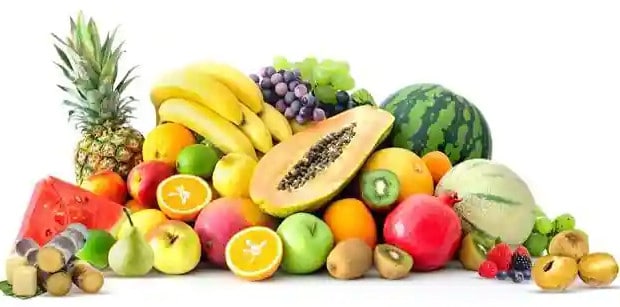
Mangoes
Lucas and his team set out to study the effects of mangoes on gut health after previous research suggested that the fruit could help to reduce inflammation. The team recruited 66 overweight or obese participants and asked them to eat either a mango or a placebo every day for six weeks.
At the end of the study, the participants who had eaten mangoes showed significant improvements in gut health, including an increase in good bacteria and a reduction in inflammation. The mango group also showed improvements in body fat, blood sugar control, and cholesterol levels.
These findings suggest that mangoes could be a valuable addition to a healthy diet, providing not only good gut health but also other benefits. More research is needed to confirm these findings, but Lucas and his team are hopeful that mangoes could one day be used as a treatment for obesity and other chronic diseases. This delicious fruit might just be a powerhouse of nutrition! Who knew? Try adding it to your smoothie today.
Miso
Miso is a fermented soybean product from Japan that is most commonly used in miso soup. It is made by fermenting soybeans with koji (a type of fungus) and salt, and can also be made with rice, barley, and rye. Miso is full of friendly live bacteria, as well as protein, fibre, vitamins, and minerals.
Vegetable fermentation has been around for centuries as a way to preserve fresh produce, but only recently have we discovered the full benefits of using bacteria in this process. Fermented foods are becoming more popular in the Western world as we learn more about the positive impact they can have on our gut health. You may also read “Is Miso Good for Gut Health? 4 Reasons Why Miso is the Best for Digestive Health”.
Mushrooms
Most people know that mushrooms are a good source of nutrients, but few realize just how beneficial they can be for gut health. Polysaccharides, a type of sugar or carbohydrate found in mushrooms, provide food for the beneficial bacteria that live in the stomach and intestines. These bacteria help to protect against infection and inflammation, and they play an important role in digestion.
One study showed that mushrooms spur the growth of good bacteria, making them an essential part of a healthy diet. So next time you’re looking for a nutritious meal, don’t forget about your fungal friends—they just might be the key to a healthy gut. You may read more about ‘Best Mushroom for Gut Health: What Science Recommends? 2022′
Natto
Natto is a popular food in Japan that is made from fermented soybeans. It has a sticky texture and a strong, pungent smell. Natto is typically eaten plain, but it can also be topped with kimchi, soy sauce, green onion and raw eggs. It can also be eaten with cooked rice.
Natto contains probiotics that serve as a defense mechanism against toxins and harmful bacteria, while also increasing healthy gut bacteria that improve digestion.
Interestingly, one gram of natto contains almost as many probiotics as a whole serving of other probiotic-rich foods or supplements, such as six ounces (170 grams) of yogurt. Its fiber content also improves the regularity of stools and reduces constipation.
Oats
Porridge is a classic breakfast food that has remained popular for years. Oats are one of the best foods that can help digestion, as they are a good source of dietary fibre. Soluble fibre, in particular, has been shown to support gut health by increasing the level of ‘good’ bacteria in the gut. Furthermore, oats are also a good source of vitamins and minerals, such as iron and magnesium.
Therefore, eating porridge for breakfast can be a great way to start the day and ensure that you are getting all the nutrients your body needs. You may read more about ‘Is Oatmeal Good for Gut Health? Surprising Facts Revealed 2022
Olive Oil
Fatty acids and polyphenols are essential nutrients for gut bacteria and gut microbes. These nutrients are found in olive oil, which has been shown to reduce gut inflammation in studies. You can use olive oil for salad dressing or drizzle it over cooked vegetables.
Some studies have also found that olive oil can ease indigestion problems and can also benefit your pancreas through lowering its requirement to produce digestive enzymes. Therefore, including olive oil in your diet is a good way to ensure that your gut bacteria and gut microbes are getting the nutrients they need to stay healthy.
Onions
Anyone who has ever cut into an onion knows that they have a potent smell. This is due to the sulfur-containing compounds that onions contain. These same compounds are responsible for the many health benefits that onions offer.
For instance, onions are a good source of prebiotics, which help promote the growth of good bacteria in the gut. They are also a rich source of antioxidants and have been shown to fight inflammation.
Consequently, including onions in your diet is a great way to support your overall health. However, it’s important to avoid refined foods when trying to get the most benefit from onions and other nutrient-rich foods. So, if you’re looking to boost your health with onions, be sure to eat them with other whole, unrefined foods.
Papaya
The papaya is a delicious tropical fruit that is often enjoyed for its sweetness and juicy flesh. But this luscious fruit has more to offer than just deliciousness – it also contains a digestive enzyme called papain. This enzyme assists during the digestive process by helping break down protein fibers. While not required in your diet, it can aid the digestion of protein.
Papain may also ease symptoms of irritable bowel syndrome (IBS), such as constipation and bloating. It’s commonly used as the main enzyme in digestive supplements due to its gastrointestinal capacities. So if you’re looking for a delicious way to improve your digestion, look no further than the papaya!
Pears
Pears are a delicious and healthy way to add some extra fiber to your diet. Not only are they a prebiotic food for the gut, but they also contain pectin, a compound that helps lower cholesterol. One medium pear is just 100 calories but has 5.5 grams of fiber. That means you can feel good about indulging in a pear crisp or adding diced pear to your oatmeal.
The fiber in oatmeal, known as beta-glucan, also helps lower cholesterol. So not only will you be getting the benefits of the pears, but you’ll also be getting the added bonus of lowering your cholesterol. What’s not to love? You may read more about ‘Best Fruit for Gut Health – Enjoy Fruits for Better Gut Health 2022
Peas
A healthy gut is essential for overall health and well-being, and one of the key components of a healthy gut is good bacteria. These helpful microbes help to break down food, absorb nutrients, and protect the body from harmful pathogens. In order to flourish, gut bacteria need fibre – and that’s where peas come in. Peas are a rich source of both soluble and insoluble fibre, which helps to keep the digestive system regular and balanced.
What’s more, peas are extremely versatile and can be easily added to a variety of dishes. So whether you’re looking to add some extra fibre to your diet or simply want to boost your gut health, make sure to add peas to your next meal.
Peppermint
Peppermint oil is a natural remedy that has been used for centuries to treat a variety of digestive issues. The oil is made from the essential oils found in peppermint leaves and contains a compound called menthol. Menthol has been shown to improve symptoms of IBS, including bloating, stomach discomfort and bowel movement issues. The oil appears to have a relaxing effect on the muscles of your digestive tract, which may improve digestion.
Peppermint oil can also ease indigestion by accelerating the food’s movement through your digestive system. If you are struggling with digestive issues, peppermint oil may be a natural remedy worth trying.
Pineapple
Pineapple is not just a delicious fruit to be enjoyed, it also may support healthy digestion because of the digestive enzyme it contains, called bromelain. Bromelain is known for breaking down proteins in the foods we eat, therefore helping ease the digestive process, leaving you less likely to feel gassy and bloated. Bromelain has also been shown to potentially counteract certain intestinal pathogens, reducing diarrhea and other digestive symptoms for some.
Studies suggest that including pineapple in your diet helps keep your gut health and supports digestive system running smoothly. So next time you’re looking for a tasty treat that may also offer some digestive benefits, reach for a juicy pineapple!
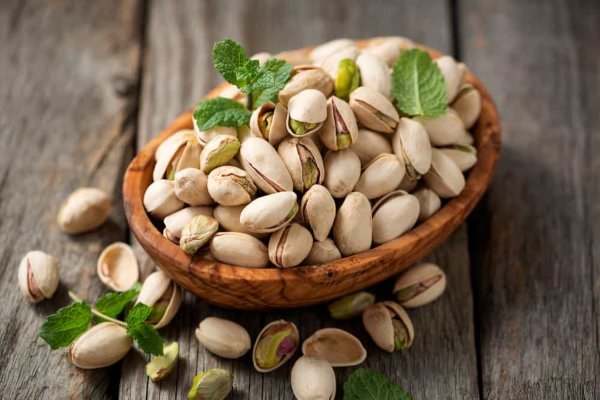
Pistachios
Nuts are an excellent source of protein, dietary fiber, and healthy fats, making them a perfect snack for those looking to improve their gut health. Among all the different types of nuts, pistachios stand out as being especially beneficial for gut health. A recent study showed that pistachios are more effective than almonds at boosting the number of “potentially beneficial butyrate-producing bacteria.”
Butyrate is a short-chain fatty acid that is produced by gut bacteria and is associated with a number of health benefits, including improved gut barrier function and decreased inflammation. Therefore, increasing the consumption of pistachios may be an effective means of modulating the gut microbiota and improving gut health. You may read more about ‘Are Pistachios Good for Gut Health? Amazing Truth Revealed 2022′
Popcorn
We all know that cinema popcorn is delicious. But what we might not realize is that it’s actually pretty good for us too. That’s right – those big buckets of fluffy goodness are packed with fiber, which is great for our gut health. In fact, just 100g of popcorn contains a whopping 14.5g of fiber. That’s more than most other popular snacks like chips or pretzels.
And because popcorn is a whole grain, it also provides essential vitamins and minerals like iron and magnesium. So next time you’re heading to the movies, don’t be afraid to indulge in a few extra handfuls of popcorn. Your gut will thank you for it!
Raw Cheese
Goat’s milk, sheep’s milk and A2 cow’s soft cheeses are particularly high in probiotics, including thermophillus, bifudus, bulgaricus and acidophilus. Always buy raw and unpasteurized cheeses if you want to receive any probiotics, as pasteurized and processed varieties are lacking in beneficial bacteria. Probiotics are live microorganisms that provide a number of health benefits when consumed. They have been shown to improve digestion, boost immunity and reduce inflammation.
Probiotics are also thought to promote a healthy balance of gut bacteria, which is important for overall health. While you can find probiotics in supplements, the best way to get them is through food. In addition to cheeses, other good sources of probiotics include yogurt, sauerkraut, kimchi, and miso soup.
Read More:
Biotics 8 Review: SCAM or A Legit Probiotic for Men?
Salmon
Salmon is a popular type of seafood that is known for being high in protein and omega-3 fatty acids. While there are many different ways to prepare salmon, one of the best ways to enjoy its health benefits is to consume it wild. Wild salmon is caught in its natural environment and is not farmed. This means that it has an abundance of omega-3 fatty acids, which are critical for healing an inflamed gut and preventing future episodes.
Salmon is also a good source of protein, making it a perfect option for those who are trying to build muscle or lose weight. If you are looking for a delicious and healthy way to enjoy salmon, be sure to opt for the wild variety.
Sauerkraut
Sauerkraut has been a popular food in many European countries for centuries. It is made by fermenting finely shredded cabbage with lactic acid bacteria. Sauerkraut is rich in probiotics, which are beneficial for gut health. It also provides fibre and vitamins B, C, and K, as well as sodium, manganese, and iron.39 Make sure you choose unpasteurised sauerkraut though, as pasteurisation kills any live bacteria.
Sauerkraut can be enjoyed on its own or as a component of other dishes such as frankfurter sausage or Reuban sandwich. Either way, it provides a deliciously sour and salty flavour that is sure to please the palate. Read more about ‘Best Time to Eat Sauerkraut for Gut Health: All You Need to Know in 2022′
Seawood
Seaweed is a type of algae that grows in the ocean. It is often used as a food source or as an ingredient in cosmetics, but it is also gaining popularity for its health benefits. Seaweed is a good source of prebiotics, which are essential for gut health. Prebiotics are fiber and sugars that help to feed the good bacteria in the gut. These good bacteria are important for digestion, immune function, and overall health.
Seaweed is also a good source of vitamins and minerals, including iodine, iron, and calcium. In addition, seaweed contains compounds that can help to prevent cancer and other diseases. While more research is needed to confirm these health benefits, seaweed is a healthy food that is worth incorporating into your diet.
Sourdough
Bread is a staple food in many cultures, but it can be difficult to digest. That’s where sourdough bread comes in. Sourdough bread is made by fermenting the dough, which makes it more digestible than regular bread.
The fermentation process also slows down the release of energy, so you won’t get a sugar crash after eating it. Sourdough bread is also very versatile. It makes great toast, sandwiches, and even pancakes. So if you’re looking for a healthier alternative to regular bread, sourdough bread is a great option.
Sprouted Grains
Sprouted grain bread has become a popular health food in recent years, thanks to its many benefits. The process of sprouting grains breaks down proteins and carbohydrates, making them easier to digest and absorb. This can be especially helpful for people who have trouble digesting gluten.
In addition, sprouted grain bread is often lower in carbohydrates than traditional wheat bread, making it a good choice for people watching their waistlines. Whether you’re looking for better digestion or a healthier option, sprouted grain bread is worth a try.
Squash
Fermentable fibers are an important part of a healthy diet. These fibers are found in fruits, vegetables, and whole grains, and they help to keep the colon clean and healthy. In addition, fermentable fibers help to regulate blood sugar levels, preventing spikes and dips in blood sugar levels that can lead to health problems.
Foods that are rich in fermentable fibers, like sweet potatoes, squash, and cauliflower, are great for stimulating the growth of good bacteria in the colon. These foods also help to reduce inflammation in the gut and increase low acid stomach levels. As a result, they are an essential part of a healthy diet.
Sweet Potato
Sweet potatoes are one of the most delicious and nutritious vegetables out there. Not only are they a good source of Vitamin A, a nutrient that is essential for maintaining and healing the intestinal barrier, but they also contain anthocyanins, a type of antioxidant that may play a role in colon cancer prevention.
Furthermore, sweet potatoes are easy to digest and emerging research on animals suggests that they can even trigger digestive enzymes. All of these factors make sweet potatoes an incredibly healthy food that everyone should include in their diet. So next time you’re at the grocery store, be sure to pick up some sweet potatoes – your body will thank you!
Tempeh
Tempeh is a traditional Indonesian food that has become increasingly popular in recent years for its high protein content and unique flavor. Tempeh is made by fermenting soybeans with a specific type of fungus, which creates vitamin B12 and gives it a distinctively nutty and earthy taste.
Vegans and vegetarians often turn to tempeh as a delicious and nutritious source of protein, since it contains all the essential amino acids that our bodies need to function properly. In addition to being an excellent source of protein, tempeh is also rich in vitamins and minerals, making it an ideal food for those looking to improve their overall health. If you haven’t tried tempeh before, now is the perfect time to give it a try!
Turmeric
Turmeric is a highly anti-inflammatory and anti-cancer spice that offers many health benefits. One of its main constituents, called curcumin, can help protect the gastrointestinal lining, positively impact gut bacteria and shows promise as a treatment for many gastric disorders like inflammatory bowel disease and colorectal cancer.
Due to its strong flavour, start off consuming small amounts of turmeric (about 1/8 tsp) and work your way up. It’s a great spice to add to teas, dairy-free elixirs and dairy-free nut or seed milk. Adding turmeric to your diet is a simple way to enjoy improved gut health and reduced inflammation. Read more about turmeric and gut health here: Is Turmeric Good for Gut Health? Best Research-Based Facts 2022
Watermelon
Did you know that watermelon is not only delicious but also good for you? Watermelon is naturally high in prebiotics, which are important for gut health. It also contains 14% of the daily recommended value of vitamin C, an antioxidant that has numerous benefits. Vitamin C helps to fight inflammation, is the building block of collagen, and increases the absorption of iron.
So, not only is watermelon delicious and refreshing, but it is also good for you! There are many ways to enjoy watermelon. You can eat it plain, or you can make a refreshing beverage or summery salad with it. However you enjoy it, be sure to take advantage of all the health benefits that watermelon has to offer!
Read More:
Probiology Gut+ Review: SCAM or Legit Probiotic Supplement in 2022?
Yogurt
Yogurt is one of the best and most well-known fermented foods. It’s made from milk that’s been fermented with live, friendly bacteria, namely bifidobacteria and lactic acid bacteria. These bacteria are important for gut health, and consuming them can help to support the immune system and promote a healthy digestive system.
Yogurt is an easy way to get your daily dose of probiotics, try including it in your breakfast with berries and honey or as a satisfying snack with nuts or granola. Make sure you’re buying the real deal, though, and go for yogurts with ‘live’ or ‘active’ cultures, as some yogurts will have been processed to kill the bacteria. You may read more about ‘Is Yogurt Good for Gut Health? Amazing Facts Revealed 2022′
Scientific Studies and References
- Hills RD Jr, Pontefract BA, Mishcon HR, Black CA, Sutton SC, Theberge CR. Gut microbiome: Profound implications for diet and disease. 2019;11(7):1613.
- Singh RK, Chang HW, Yan D. Influence of diet on the gut microbiome and implications for human health. J Transl Med. 2017;15(1):73.
- Frati F, Salvatori C, Incorvaia C. The role of the microbiome in asthma: The gut-lung axis. Int J Mol Sci. 2018;20(1):123.
- Reynolds A, Mann J, Cummings J, Winter N, Mete E, Te Morenga L. Carbohydrate quality and human health: a series of systematic reviews and meta-analyses. 2019;393(10170):434-445.
- Soluble vs insoluble fiber. MedlinePlus. Accessed 03/17/2021.
- Carlson JL, Erickson JM, Lloyd BB, Slavin JL. Health effects and sources of prebiotic dietary fiber. Curr Dev Nutr. 2018;2(3):nzy005.
- AGA does not recommend the use of probiotics for most digestive conditions. American Gastroenterological Association. Accessed 03/17/2021.
- Monda V, Villano I, Messina A, et al. Exercise modifies the gut microbiota with positive health effects. Oxid Med Cell Longev.
- Probiotics for the treatment of adult gastrointestinal disorders. American College of Gastroenterology. Accessed 03/17/2021.
Read More:
Are Tomatoes Low FODMAP? Shocking Truth Revealed 2022
Best Exercises for Gut Health: 8 Easy Exercises for Digestive Health
Best Over the Counter Probiotic for Gut Health: Easy Guide 2022

